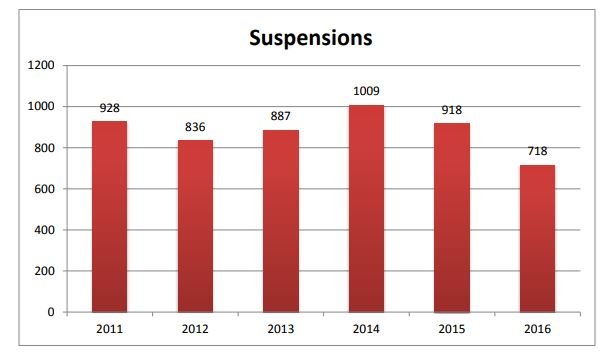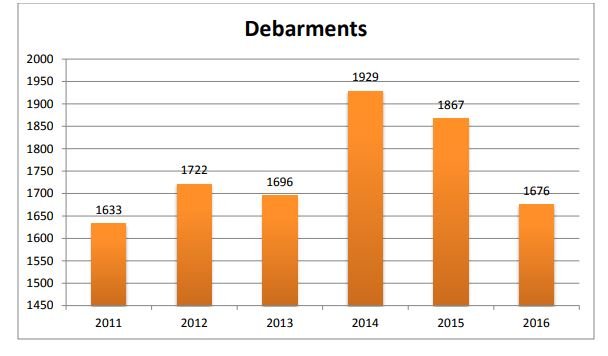

Ariel Friedler, the founder and former CEO of Symplicity Corp., had his debarment overturned by the District Court of D.C.
The former government contractor who was busted for hacking into a non-federal competitor’s network is back.
Ariel Friedler, the founder and former CEO of Symplicity Corp. — a government contractor who had run FedBizOpps.gov and other contracting platforms for much of the 2000s — won a significant suspension and debarment decision in the Washington D.C. District Court.
The court ruled that the General Services Administration unfairly debarred Friedler in 2015 because GSA did not give him notice of all of the grounds for his debarment and an opportunity to respond to each of them prior to the agency’s final debarment determination.
The court ruled that GSA “relied on Friedler’s alleged post-conviction conduct in reaching the conclusion that he should be debarred but failed to notify him of these purported violations — a failure that is unquestionably improper under the applicable provisions of the Federal Acquisition Regulation. And because this court cannot reasonably find that [GSA] would have debarred Friedler on the basis of his criminal conviction alone, the court cannot conclude that the agency’s error in relying on the two additional grounds without providing notice was harmless.”
Dismas Locaria, a partner with Venable in Washington, D.C., wrote in a blog post that despite usually giving deference to the agency when it comes to suspension and debarment, the courts are willing to hold agency officials accountable for giving contractors the right to respond.
“This is not a huge decision, but it does set precedent,” Locaria said in an interview with Federal News Radio. “It’s a great decision for contractors because it means the courts are holding the government’s feet to the fire when it comes to suspension and debarment decisions.”
Generally speaking, courts don’t second-guess the government’s decision when there appear to be grounds for suspension and debarment.
But Locaria said GSA didn’t give Friedler 30 days to respond to the new findings of fact and therefore the grounds for debarment were not just.
An email sent via LinkedIn to Friedler seeking comment on the court’s decision was not returned. Friedler’s lawyer, Fred Levy, called me back, but after returning his call, didn’t call me again.
A Symplicity spokeswoman said, “Ariel Friedler has not worked at Symplicity for several years. As this case is a personal matter for Mr. Friedler which does not involve Symplicity, we would suggest that you reach out to him directly.”
GSA initially suspended Friedler and proposed him for debarment in 2014, when he pleaded guilty to hacking into a competitor’s network. He had been under FBI investigation since 2009.
GSA initially said it would debar Friedler based on the hacking conviction.
But in GSA’s final notice debarment, the agency listed two other reasons — Friedler was back working at Symplicity and talking to employees, and was developing new lines of business in the federal market. GSA and Friedler agreed he would not do both of these actions during the negotiations of the debarment.
“The Friedler court found that GSA ran afoul of these concepts by debarring Friedler based on two new factual grounds not included in the Notice of Proposed Debarment,” Locaria wrote in the blog post. “The D.D.C. noted that not only were the grounds themselves labeled as ‘new causes’ under the notice, but that even without that language, such conduct necessarily constituted a new cause because it had not yet occurred at the time the Notice of Proposed Debarment was issued.”
Additionally, Locaria said the judge “was unconvinced that Friedler’s criminal conviction alone provided a basis for Friedler’s debarment; had Friedler been afforded the opportunity to respond to the two other identified causes, it is possible no debarment would have resulted.”
Locaria said GSA could re-propose Friedler for debarment based on all three factors, or they could just let the case go away quietly.
He said there is no statute of limitations or double jeopardy for suspension and debarment cases.
Overall, suspension and debarment cases have leveled off after a huge push by Congress and the Obama administration over the last five years.
In the fiscal 2016 report to Congress, the Interagency Suspension and Debarment Committee said there were 718 suspensions, 1,855 proposed debarments and 1,676 debarments. That is 42 percent more suspensions (417) than in 2009, and more than double the number of proposed debarments (750) and actual debarments (669) than seven years ago.

The Army, the Department of Homeland Security and the Navy were most active with debarments, while the Department of Housing and Urban Development suspended the most contractors last year.
“I don’t see the focus on suspension and debarment letting up anytime soon. There is bipartisan support to go after government contractors who are seen as committing waste, fraud and abuse,” Locaria said. “I think agencies are at capacity more than anything and they can’t do more, which is why the numbers have leveled off. But right now, with people concerned about the hurricane response efforts, I could see in two or three years, there will be conversations about the federal money spent to rebuild those areas affected.”

Copyright © 2025 Federal News Network. All rights reserved. This website is not intended for users located within the European Economic Area.
Jason Miller is executive editor of Federal News Network and directs news coverage on the people, policy and programs of the federal government.
Follow @jmillerWFED


